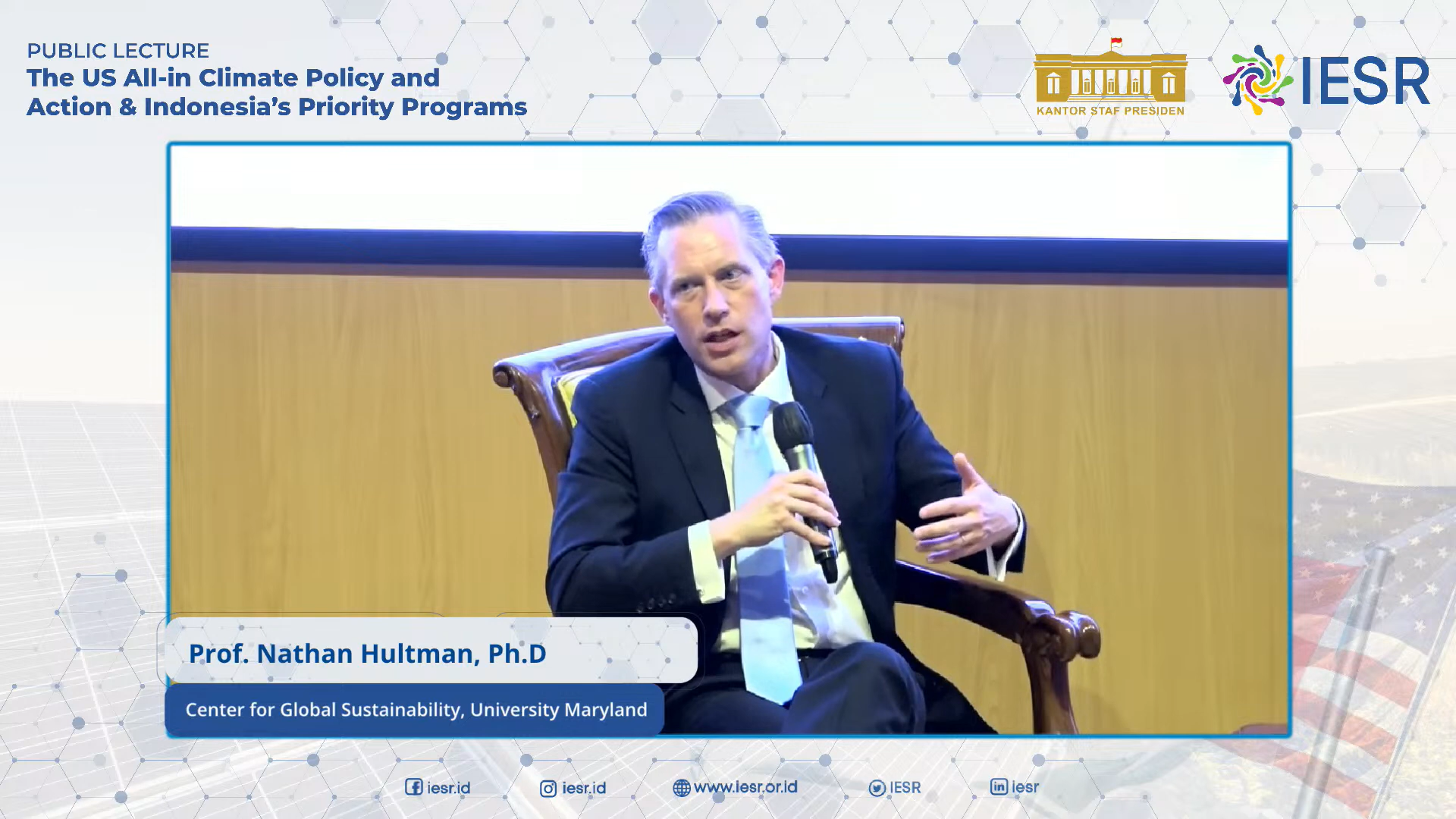Jakarta, 13 September 2022 – To combat the climate crisis, our action today will determine the economic, and sustainability of mankind in the long run. The IPCC report has already told us that the remaining time we have to hold the global temperature at 1.5 degree Celsius is limited. Global commitment to address climate change has been pushed through international forums.
After rejoining the Paris Agreement during the Biden – Harris administration, the United States (US) is actively encouraging global citizens to tackle climate change through policies and strategic planning. Recently, the US just released new regulations i.e Inflation Reduction Act (IRA) to boost the utilization of clean energy technology. The US’s target is to reduce 50-52% of GHG emissions by 2030 and use 100% clean electricity by 2035 before being net-zero emission in 2050.
Nathan Hultman, director of the Center for Global Sustainability University of Maryland, during a public lecture session in collaboration with the Office of the President of Indonesia, and the Institute for Essential Services Reform said that he believes that we can achieve the 1.5-degree level.
“We are surely making some progress and are still on the 1.5-degree track. But our work is not done. We have more work to do especially through policy,” Nathan said.
Nathan emphasizes the need for a multi-stakeholder approach in addressing climate emergencies through the energy transition. He explained that the national government is an important stakeholder in determining the energy transition. However, in energy transition we cannot rely solely on the national government since the idea of energy transition must be embraced by many actors including the sub-national level government and even the private sectors.
“For example, in the US during the Trump administration there are not so many things (climate policy) happening, but there is some progress at the sub-national level that pushes national policy in the upcoming administration,” he explained.
Realizing that most democratic countries have similar stakeholders, this ‘All in’ approach can be duplicated in other countries. Every country is different, but each of us has the opportunity to do more.
Playing a strategic role as a G20 leader this year, Indonesia has a critical point in achieving global climate goals. By proposing a more ambitious climate pledge, accelerating renewables into the system, and adopting EVs in massive numbers, Indonesia can inspire other countries to show concrete action in addressing the climate crisis.
Every country needs to figure out its strategic way to do the transition but learning from others is a need indeed. Global commitment to support funding for energy transition must be fulfilled to assist developing countries in running the transition smoothly.
Hageng Nugroho, the Executive Staff Office of the President of Indonesia emphasizes the role of global collaboration to achieve the net zero target.
“Indonesia pledge to be net zero on 2060, and in achieving it we encounter several obstacles from technology till funding. There are at least four things that must be done by a country to avoid the harsh effects of the climate crisis. First, comply the NDC target, encourage citizen and potential stakeholder to participate’, strengthen the global partnership, and boosting the green economy development,”
Hageng added that the most important point is ensuring that the commitment is manifested into action rather than staying at policy level only.

